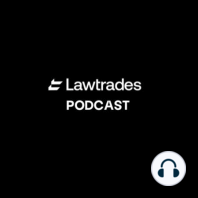10 min listen

?️ The Supreme Court of Facebook sends the Trump problem back to Zuckerberg
?️ The Supreme Court of Facebook sends the Trump problem back to Zuckerberg
ratings:
Length:
10 minutes
Released:
May 12, 2021
Format:
Podcast episode
Description
This week: Facebook’s internal court goes big, and Snapchat loses a key Section 230 decision. Plus: lawyers and lobbyists enter the crypto regulation space.?⚖️ Inside the Facebook oversight board’s Trump decisionThe Supreme Court of Facebook made its biggest ruling yet last week, telling Facebook it had to decide Donald Trump’s social media fate on its own. In January, Facebook suspended Trump indefinitely: The move followed an incendiary post by Trump on the day of the capitol riot. Facebook then asked its board of journalists, activists, professors, and former politicians about the suspension: Zuckerberg, as the New York Times reports, has compared the board to the Supreme Court, saying it was “made up of independent folks who don’t work for Facebook who ultimately get to make the final judgment call on what should be acceptable speech in a community.” Zuck saw the board as a mechanism for making decisions -- which Facebook says are binding -- that are too important for the company itself to make.And this was a huge decision: The board agreed Facebook was justified in suspending Trump but said the suspension should not have been indefinite because the company had no established policies for making such a move. It told Facebook to decide whether to ban Trump forever or put him back on the platform, ironically giving Zuckerberg and other execs the power to make the type of consequential moves he didn’t want. Consider this a Marbury v. Madison momentThe advisory board illustrated its independence from Facebook and also acted a lot like the real Supreme Court. As Michael Barbaro commented on The Daily, “Facebook’s ‘Supreme Court’ is kicking a case back down to a lower court. In this case, to Facebook itself, and saying, you didn’t do this correctly, and it’s your problem to figure out how to do it correctly.” (The entire episode is worth a listen, as is a Q&A with a St. John’s law professor who has researched the board since its inception.) The VerdictThe advisory board gave Facebook six months to make its final decision on Trump. ? The Snapchat lawsuit that may change years of legal precedent As we’ve written many times, Section 230, the law giving internet companies immunity from lawsuits based on content made by users, may undergo reform thanks to pressure from both sides of the political aisle. But a federal appeals court is already picking it apart, according to NPR. Snapchat was recently sued over the “speed filter” on its app: Three teenagers had been using Snap to document their 120 mph-plus drive on backroads in Wisconsin when they crashed into a tree and died. The family sued, arguing the Snap filter was partially to blame for their death. A trial court threw out the case, but the 9th Circuit Court of Appeals ruled it could proceed. Section 230 has traditionally kept these cases from getting far: But this time the court deemed the design of the app itself to be the problem, rather than the content created by the user. Judge Kim McLane Wardlaw wrote, "This type of claim rests on the premise that manufacturers have a 'duty to exercise due care in supplying products that do not present an unreasonable risk of injury or harm to the public.'" There’s no guarantee this will be more than a narrow rulingFor now, the case goes back to the original trial court. If that court also deems Section 230 inapplicable, then we could see some major legal questions arise.In the meantime, experts anticipate trial lawyers to bring new cases against tech companies, albeit with limited success. "I don't think that this opinion actually will open up the Pandora's Box of saying, 'You can sue a website for how it's designed under all circumstances,'" Santa Clara law professor Eric Goldman told NPR. The VerdictGiven this new ruling, which contrasts with decisions made by the other federal appeals courts, the Supreme Court may be more likely to take up Section 230 in the near future.? Crypto companies are hiring top lawyers and lobbyists
Released:
May 12, 2021
Format:
Podcast episode
Titles in the series (100)
?️ The Supreme Court of Facebook sends the Trump problem back to Zuckerberg: This week: Facebook’s internal court goes big, and Snapchat loses a key Section 230 decision. Plus: lawyers and lobbyists enter the crypto regulation space. by Lawtrades Podcast